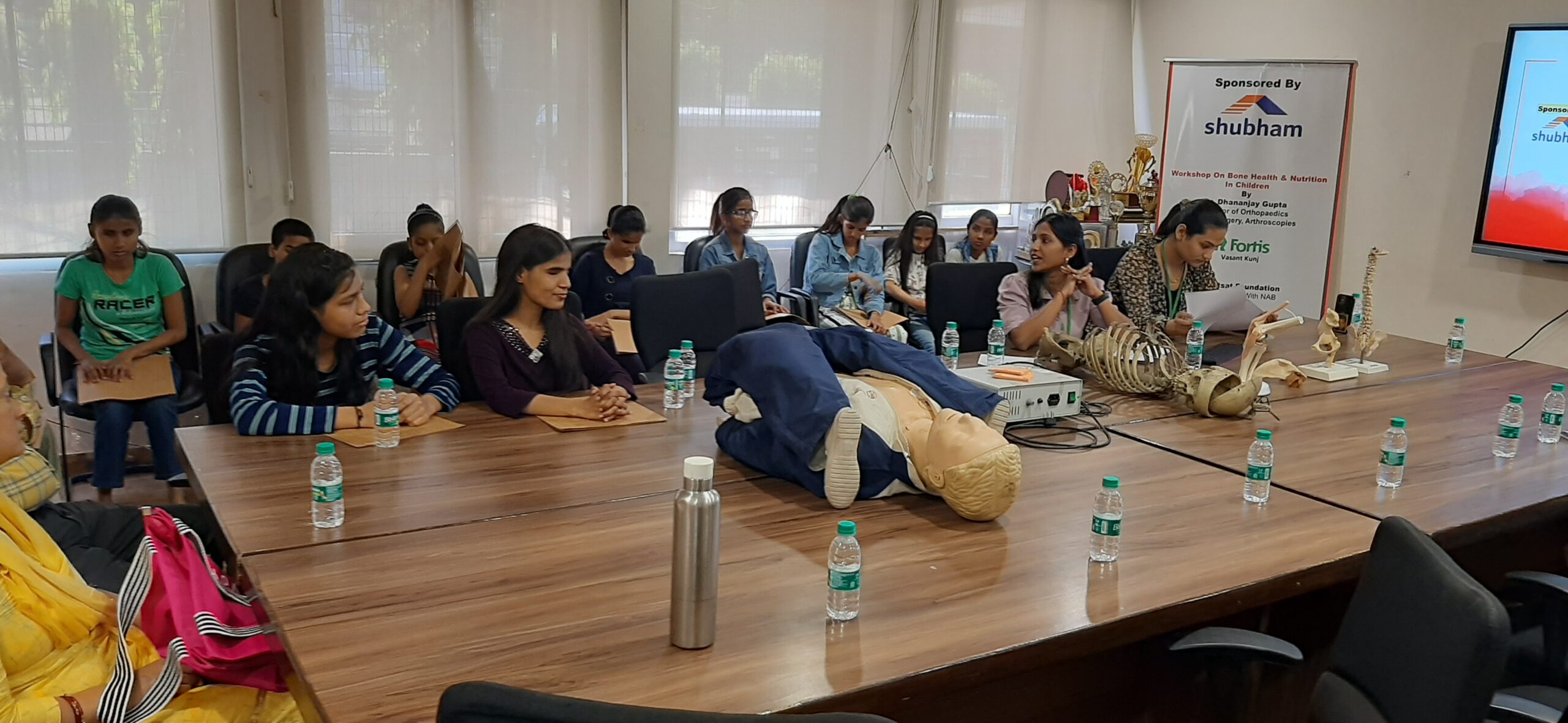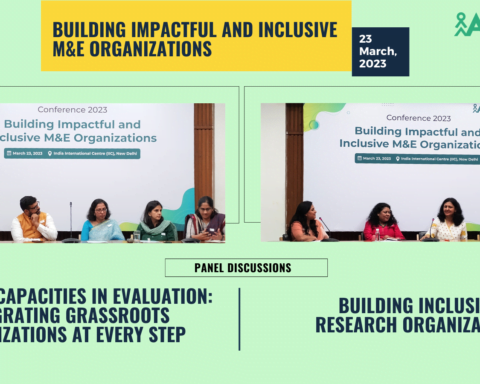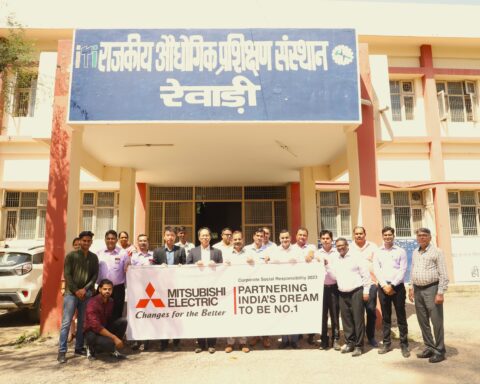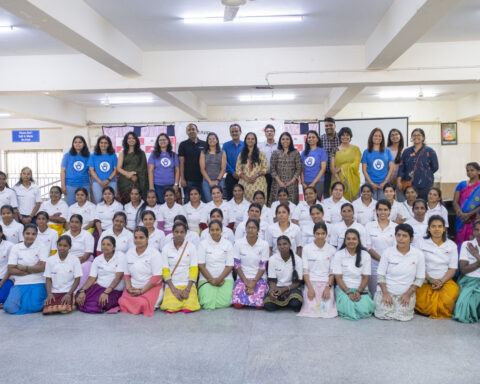Tatsat Foundation, in association with National Association for Blind organised an educational workshop for Persons with Disability (PwDs) on Bone Health & Nutrition in Children. The workshop was conducted by renowned orthopedician, Dr Dhananjay Gupta, Director of Orthopaedics and Joint Surgeries, Fortis Hospital, Vasant Kunj, and sponsored by Shubham Housing Development Finance Company Ltd.
The highly interactive workshop, specially designed for visually impaired children aged between 10 to 19 years, was held at the National Association for Blind campus in R.K. Puram, New Delhi, was intended to educate PwDs students from class 4th to 12th about the importance of bone health, bone structures, functioning of joints, cartilage and muscles, functions of the skeletal system, and the role of nutrition for developing a healthy skeletal system.
The most important takeaway from the workshop was the adverse impact of processed and ultra-processed food on the body’s skeletal and musculoskeletal systems. The students were made aware how industrial (processed) foods, which have become a part of our diets, are low on vital nutrition and high on calories adversely impact overall health, including bone health.
The workshop also highlighted some of the most common injuries and sports injuries and how to treat them. Further, one should avoid conditions caused by poor nutrition, genetics, or problems with the rate of bone growth and rebuilding, which further leads to diseases or disorders such as Osteoporosis, Paget’s Disease, Bone Infection, Osteonecrosis, Bone Tumours, Osteoarthritis, Rheumatoid Arthritis, Scoliosis, Low Bone Density, and Gout, to name a few.
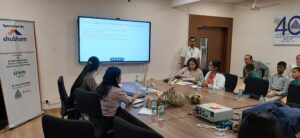
Dr Dhananjay Gupta, Director of Orthopaedics and Joint Surgeries, Fortis Hospital, Vasant Kunj, said, “Bone diseases and disorders generally cause musculoskeletal disability. For example, arthritis and malnutrition is a disorder that can severely impair the function of the musculoskeletal system. To have strong bones when you are young, and to prevent bone loss when you are older, you need to get enough calcium, Vitamin D, and exercise. A diet consisting of foods from several food groups provides all the required nutrients in proper amounts. Cereals, millets, and pulses are major sources of most nutrients. Milk which provides good quality proteins and calcium should be an essential item of diet, particularly for children and women. Further, a study on bones development in 2021, showed that Ultra-Processed food targets bone quality via endochondral ossification. Simply put, it means that consumption of processed food on regular basis stunts growth. It’s important for us to understand that processed food should not be a part of regular diet. Foods that are subjected to technological modifications, either for preservation or for converting into ready-to-use or eat foods are called ‘processed foods’. These types of food items include ready mixes, dehydrated foods, readymade pasta products, canned foods, confectioneries, bakery, processed dairy products, and breakfast items. Processed foods being rich in fats, salt, sugar, and preservatives may pose a health risk if consumed regularly.”
Dr Sumi Gupta, Director, Tatsat Foundation, said, “It is a positive and healthy change to see a strong resurgence of millets across the world. Recently, the United Nations declared 2023 as the International Year of Millets on the recommendation from the Indian Government in 2019. Millets are rich in dietary fibre, both soluble and insoluble. The insoluble fibre in millet is known as ‘prebiotic’, which means it supports good bacteria for the digestive system, making these grains great for a healthy digestive system and better gut health. High in protein, gluten-free and low in glycaemic index, millets are rich in Vitamin A and B and minerals like phosphorus, potassium, niacin, calcium, iron with ample amount of antioxidants. It makes these grains a powerhouse of nutrition and helps in reducing the risk of cardiovascular diseases, strokes, diabetes and high blood pressure. Bajra (pearl millet) is loaded with a variety of nutrients including protein, fibre, magnesium, iron, and calcium. Similarly, Ragi (finger millet) is high in protein, iron, calcium, and various essential amino acids. Foxtail millet and Jowar (sorghum) are rich in Vitamin B12, which is essential for maintaining a healthy heart and healthy functioning of the nervous system. Millets are good for skin and hair growth as well. It is commonly stated that millets are better than oats for their higher calcium content. According to a study, ragi has more than five times calcium than Oats and bajra has three times more iron content than Oats. Other All types of millets are renowned for their high nutritional value and health benefits.”
On this occasion, Mr. Ashish Vasudev, Executive Director, National Association for Blind, (NAB), said, “Educational workshops like Bone Health & Nutrition in Children are very useful and informative for our students, which form practical knowledge supporting the classroom curriculum. Such initiatives help a step forward towards inclusive education and assistive technology for people with physical disability. This initiative is highly encouraging and we welcome more of such efforts”.
Mr. Sanjay Chaturvedi, CEO & Founder, Shubham Housing Development Finance Company Ltd, on this occasion said, “Education is essential for all children and we at Shubham, believe equal opportunity must be provided to all children alike. We are glad to be a part of the educational workshop on Bone Health & Nutrition in Children, organised by Tatsat Foundation today.
This will contribute towards better and inclusive education for the underprivileged children with multiple disabilities”.
Dr Dhananjay Gupta and his team of specialist doctors explained to students aged between 10 to 19 years about bones, bone structures, importance of nutrition and health of bones. Among the topics discussed in the workshop, the attendees were explained how 206 bones and 32 teeth function like living tissues and are constantly going through a cycle of renewal, where older bone tissues are replaced by newly formed bone tissues through the process of ‘remodelling’.
They were also taught how health or condition of bones is generally measured by using the bone density metric. It is an indicator of bone mass. Generally, bone density is at its peak amongst young adults between the age 15 to 20 years. Thereafter, bone density starts reducing for which a regular intake of calcium, Vitamins, including Vitamin D, minerals, strength-training and weight-bearing exercises, and medications like Estrogen replacement therapy needs to be undertaken for maintaining a healthy bone density.

